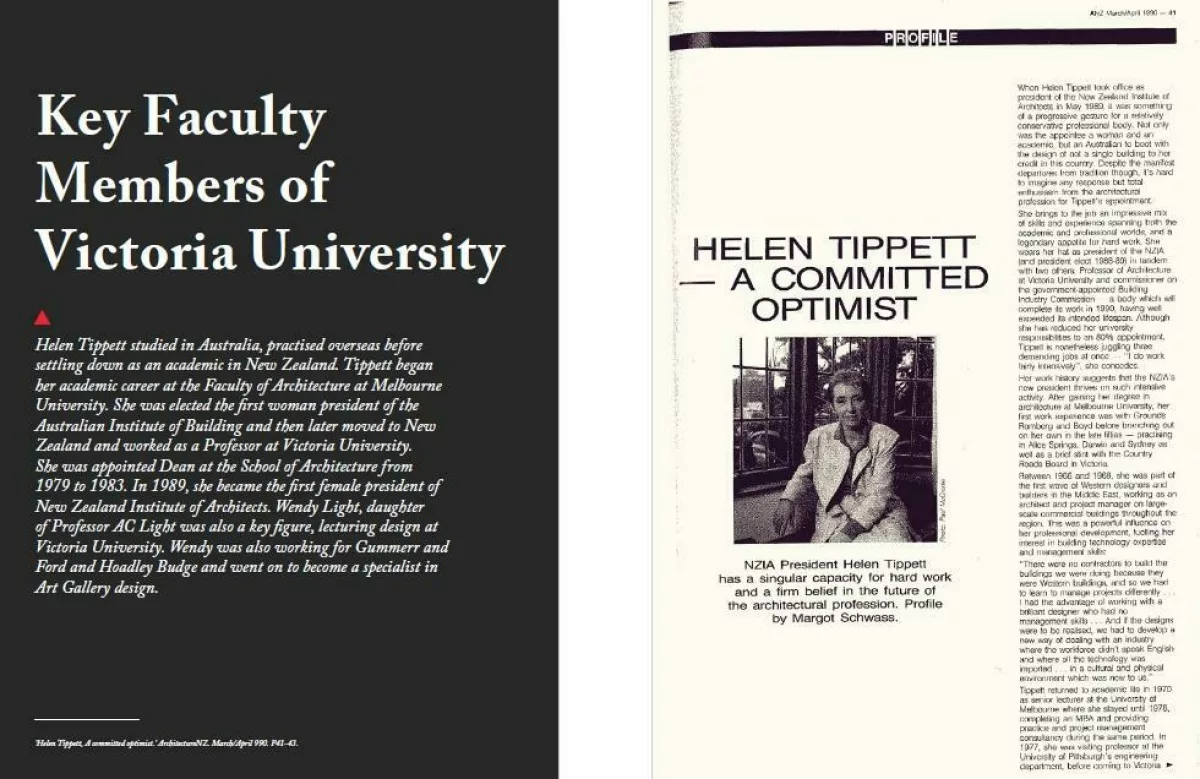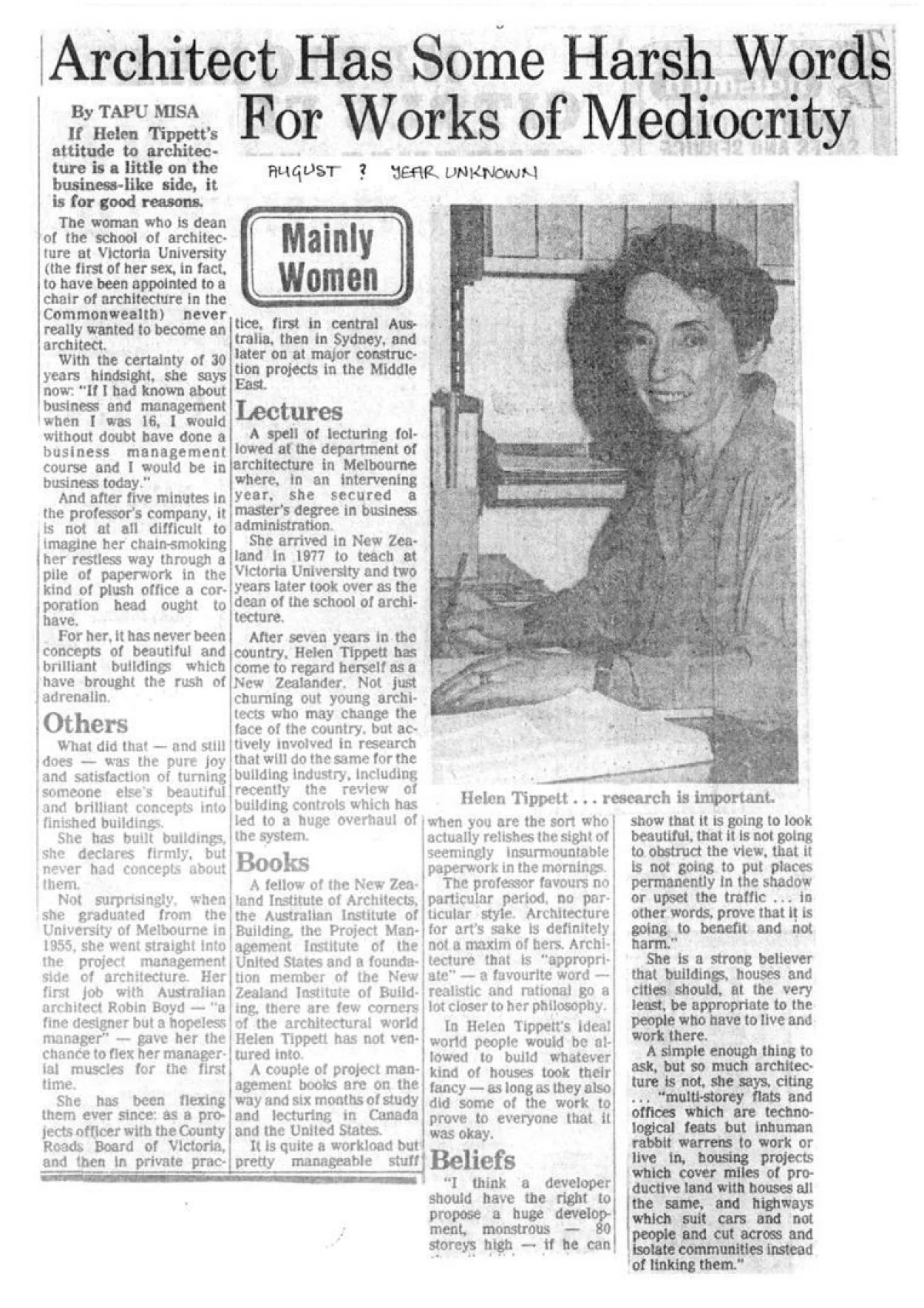Helen Tippet Obituary, by John Gray
16 Mar 2014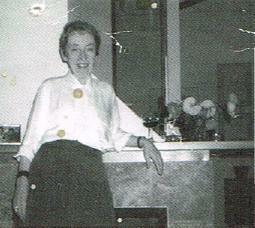
Helen Tippett (1933-2004) Obituary, by John Gray published in the Cross Section NZIA News May 2004.
Helen Tippett was the first woman professor of architecture in Australasia, was awarded the NZIOB medal in 1989, and the OBE for services to architecture in 1994. She was the first woman NZIA President (in 1989) and received a leadership Award from the Master Builders Federation in 1990. Helen Tippett combined a career in academia (chair of architecture at Victoria University) with practice (co-founder of The Architects Collaborative).
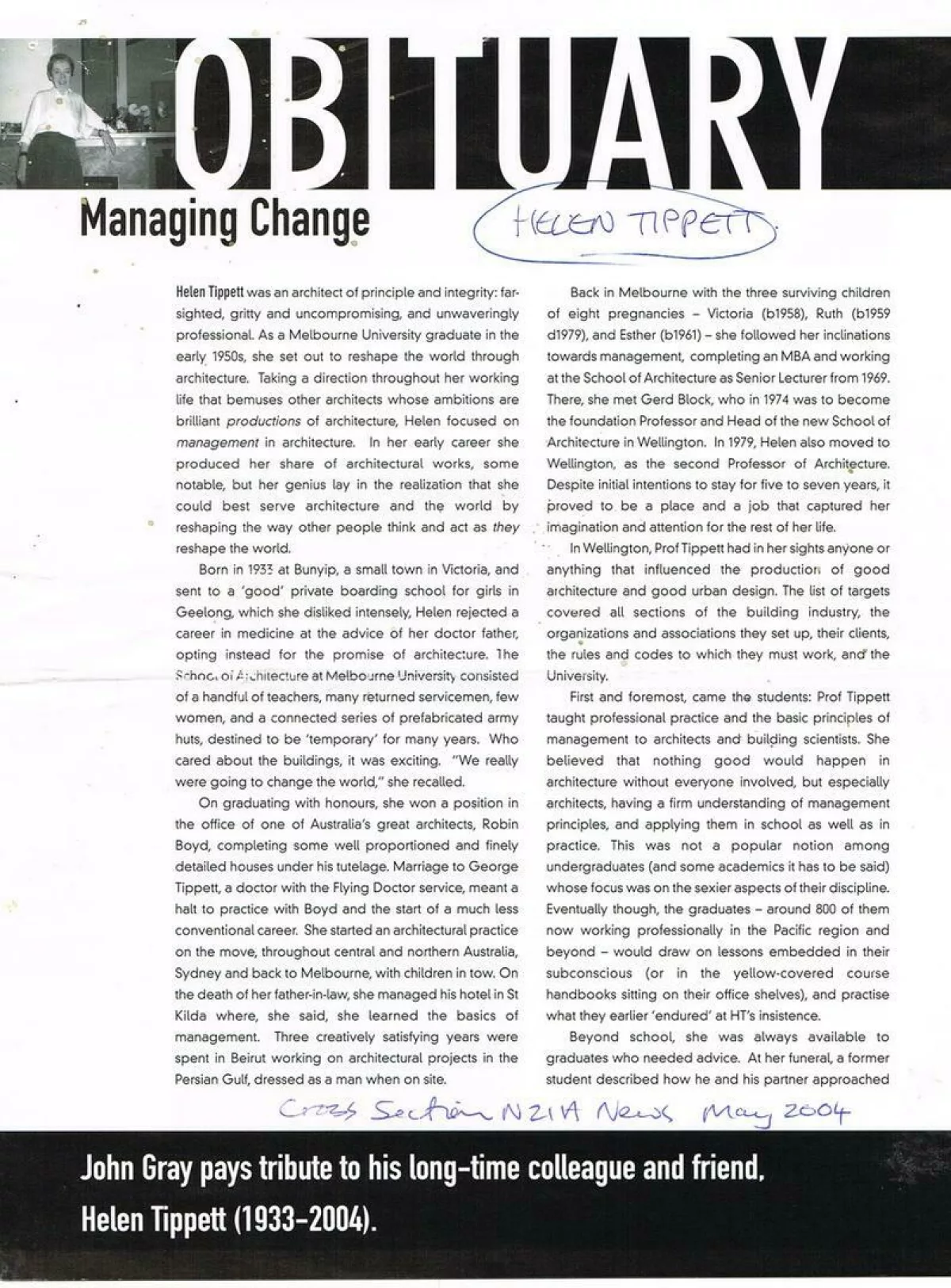
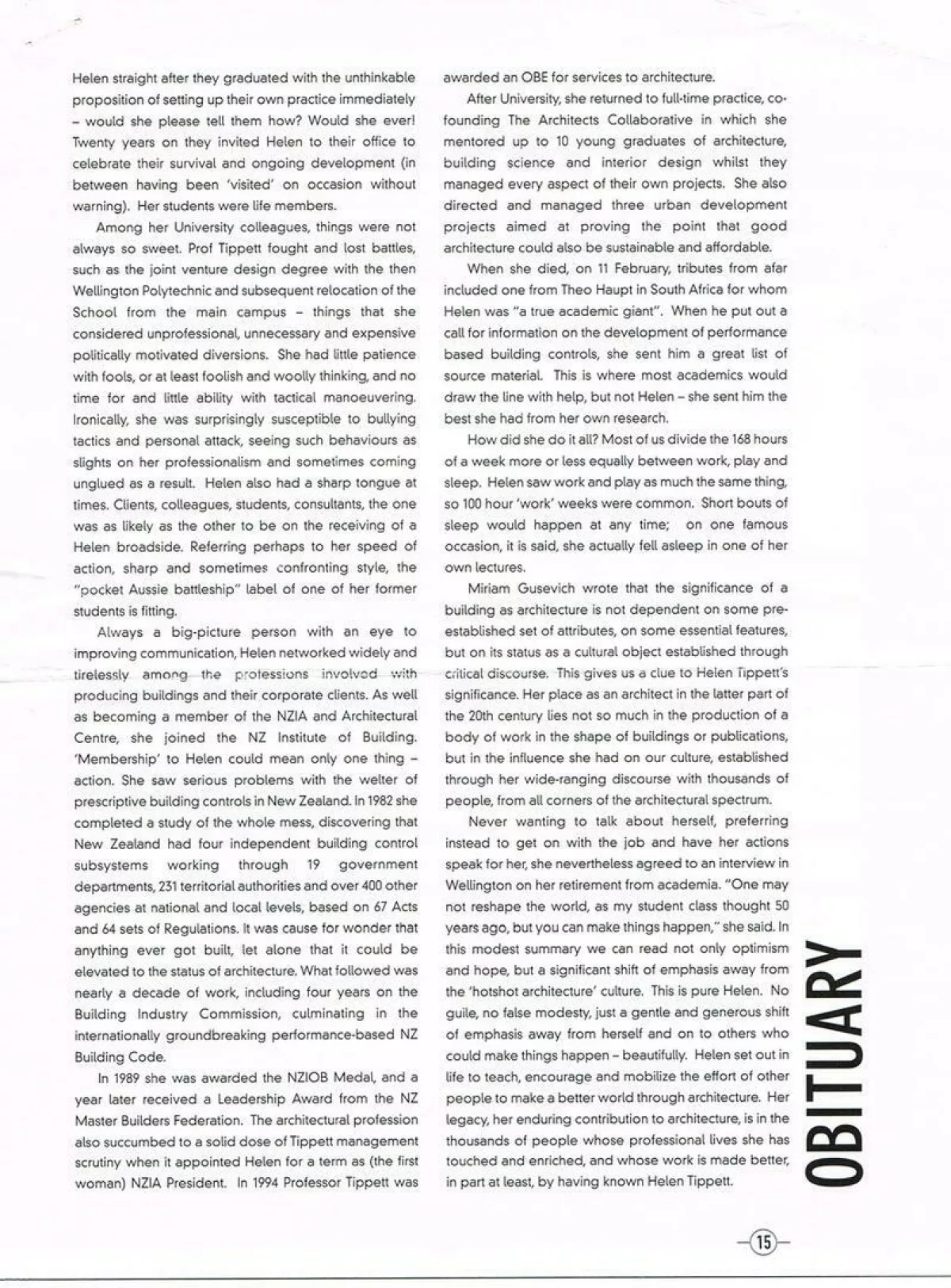
See also the obituary published in The Age, Melbourne, written by Hugh O'Neill (re-posted below) and an article written by Tapu Misa for the NZ Herald (also re-posted at base of page).
(Reproduced without editing);
The Age (Melbourne)
April 17, 2004 Saturday
HEADLINE: Trailblazer For Women And Interdisciplinary Work
BYLINE: Hugh O'neill
Obituary - HELEN TIPPETT - OBE, PROFESSOR OF ARCHITECTURE -
23-3-1933 - 11-2-2004
Helen Tippett, the first woman professor of architecture in Australasia and, in 1989, the first woman president of a national institute of architects, in New Zealand, has died. She was 70.
As a prominent teacher intent on drawing academic programs closer to the professions, she had been sought out and offered the chair of architecture at Victoria University, Wellington, New Zealand, by professor Gerd Block, the inaugural dean.
At an exhibition held in Wellington in 1993 to celebrate Centennial Suffrage Year, Tippett described herself as professor of architecture and chartered builder for constructive agenda, women in architecture.
The following year, she was appointed professor at the school of architecture and building at Deakin University. For six months each year she worked in Geelong, where she had matriculated from The Hermitage in 1949. The appointment at Deakin was concurrent with the chair of architecture at Victoria University, which she held from 1979 until 1999. She was awarded an OBE in 1994. In 2000 she retired and "made a career change from academia to practice".
Her undergraduate studies at Melbourne University already revealed a determination to solve problems of careful planning analysis and building production as part of the design process. The preoccupation of other students with new forms and emerging theories in the heady years after World War II led her to declare that she was not a "natural" designer. Yet she spent her last four years in active design and project management in partnership with academic colleague John Gray, also a Melbourne University graduate.
Resident in Janet Clarke Hall as a 16-year-old, Tippett (then O'Donnell) was renowned for working through several nights on assignments. At the same time she was setting the Melbourne University Union Theatre alight with hilarious and raunchy performances in the pioneering Architecture Revues produced by Peter McIntyre.
Following one production in 1951, the student theatre manager Joy Youlden was on crutches for weeks with a severely sprained foot having pushed through the crush in a vain attempt to stop an apache dance Helen was performing with a first year student recently arrived from Alexandria, Egypt.
Tippett was an outstanding student among a clever group. In 1954, before taking out her degree, she was already working with Robin Boyd in the East Melbourne office of Grounds Romberg and Boyd. They had taught her at the university before establishing their joint practice in the previous year.
She married George Tippett in 1953. He was studying medicine and had also gone to school in Geelong.
In 1958, they moved to the Northern Territory, where George worked for the Royal Flying Doctor Service and Helen opened a practice in Alice Springs designing solar houses and buildings for church and Aboriginal settlements.
She continued in practice in 1959 and then, in 1964, with their three young daughters, followed her husband to Beirut, Lebanon, where he worked at the American University Hospital. She became project manager for a design-construction group on commercial and industrial projects in Kuwait, Abu Dhabi, Saudi Arabia and Lebanon.
When they returned to Australia in 1969, Tippett began her academic career at the faculty of architecture and building, at Melbourne University. At the invitation of professor Brian Lewis, she taught design and project and practice management.
She took an MBA at the Melbourne Business School in 1973 and added project management to the faculty's architecture curriculum.
As head of the building degree course from 1975, she was elected the first woman fellow of the Australian Institute of Building, and in 1979 joined Professor Block at Victoria University in New Zealand.
Her conviction that professionals in different areas needed to learn to work together contributed to the science-based interdisciplinary program of the newly formed curriculums.
She was dean from 1980 to 1983. Contract research projects and publications investigated building control systems, affordable housing, building access, building quality assessment, urban development and building education.
One former student and leading practitioner in Melbourne described her as "an outstanding teacher and mentor, a great inspiration with her energy, organisational skills and the intellectual pitch of her interests and involvements. She was strong yet versatile, and a sensitive person who took us beyond aspiring to design excellence in our solutions, to plan and manage how they could be delivered on the ground".
A passionate woman with a powerful intellect, Tippett suffered great personal loss when she was at Melbourne University; her father and elder sister died. And later, her second daughter, Ruth, died after obtaining brilliant results studying first-year medicine.
Divorced from George, she gave her other daughters Victoria and Esther every opportunity, and they flourished when they moved to New Zealand in 1979.
She is survived by her two daughters, who organised a service to celebrate her life at St Anne's Church, Newtown, in Wellington on February 14, and her brother Dr J. K. O'Donnell.
Hugh O'Neill is senior fellow at Melbourne University, and adjunct professor at Deakin University.
